第19章 II(3)
2. Every medicinal substance must be administered in a state of the most perfect purity, and uncombined with any other. The union of several remedies in a single prescription destroys its utility, and, according to the "Organon," frequently adds a new disease.
3. A large number of substances commonly thought to be inert develop great medicinal powers when prepared in the manner already described; and a great proportion of them are ascertained to have specific antidotes in case their excessive effects require to be neutralized.
4. Diseases should be recognized, as far as possible, not by any of the common names imposed upon them, as fever or epilepsy, but as individual collections of symptoms, each of which differs from every other collection.
5. The symptoms of any complaint must be described with the most minute exactness, and so far as possible in the patient's own words.
To illustrate the kind of circumstances the patient is expected to record, I will mention one or two from the 313th page of the "Treatise on Chronic Diseases,"--being the first one at which I opened accidentally.
"After dinner, disposition to sleep; the patient winks."
"After dinner, prostration and feeling of weakness (nine days after taking the remedy)."
This remedy was that same oyster-shell which is to be prescribed "fractions of the sextillionth or decillionth degree. According to Hahnemann, the action of a single dose of the size mentioned does not fully display itself in some cases until twenty-four or even thirty days after it is taken, and in such instances has not exhausted its good effects until towards the fortieth or fiftieth day,--before which time it would be absurd and injurious to administer a new remedy.
So much for the doctrines of Hahnemann, which have been stated without comment, or exaggeration of any of their features, very much as any adherent of his opinions might have stated them, if obliged to compress them into so narrow a space.
Does Hahnemann himself represent Homoeopathy as it now exists? He certainly ought to be its best representative, after having created it, and devoted his life to it for half a century. He is spoken of as the great physician of the time, in most, if not all Homoeopathic works. If he is not authority on the subject of his own doctrines, who is? So far as I am aware, not one tangible discovery in the so-called science has ever been ascribed to any other observer; at least, no general principle or law, of consequence enough to claim any prominence in Homoeopathic works, has ever been pretended to have originated with any of his illustrious disciples. He is one of the only two Homoeopathic writers with whom, as I shall mention, the Paris publisher will have anything to do upon his own account. The other is Jahr, whose Manual is little more than a catalogue of symptoms and remedies. If any persons choose to reject Hahnemann as not in the main representing Homoeopathy, if they strike at his authority, if they wink out of sight his deliberate and formally announced results, it is an act of suicidal rashness; for upon his sagacity and powers of observation, and experience, as embodied in his works, and especially in his Materia Medica, repose the foundations of Homoeopathy as a practical system.
So far as I can learn from the conflicting statements made upon the subject, the following is the present condition of belief.
1. All of any note agree that the law Similia similibus is the only fundamental principle in medicine. Of course if any man does not agree to this the name Homoeopathist can no longer be applied to him with propriety.
2. The belief in and employment of the infinitesimal doses is general, and in some places universal, among the advocates of Homoeopathy; but a distinct movement has been made in Germany to get rid of any restriction to the use of these doses, and to employ medicines with the same license as other practitioners.
3. The doctrine of the origin of most chronic diseases in Psora, notwithstanding Hahnemann says it cost him twelve years of study and research to establish the fact and its practical consequences, has met with great neglect and even opposition from very many of his own disciples.
It is true, notwithstanding, that, throughout most of their writings which I have seen, there runs a prevailing tone of great deference to Hahnemann's opinions, a constant reference to his authority, a general agreement with the minor points of his belief, and a pretence of harmonious union in a common faith. [Those who will take the trouble to look over Hull's Translation of Jahr's Manual may observe how little comparative space is given to remedies resting upon any other authority than that of Hahnemann.]